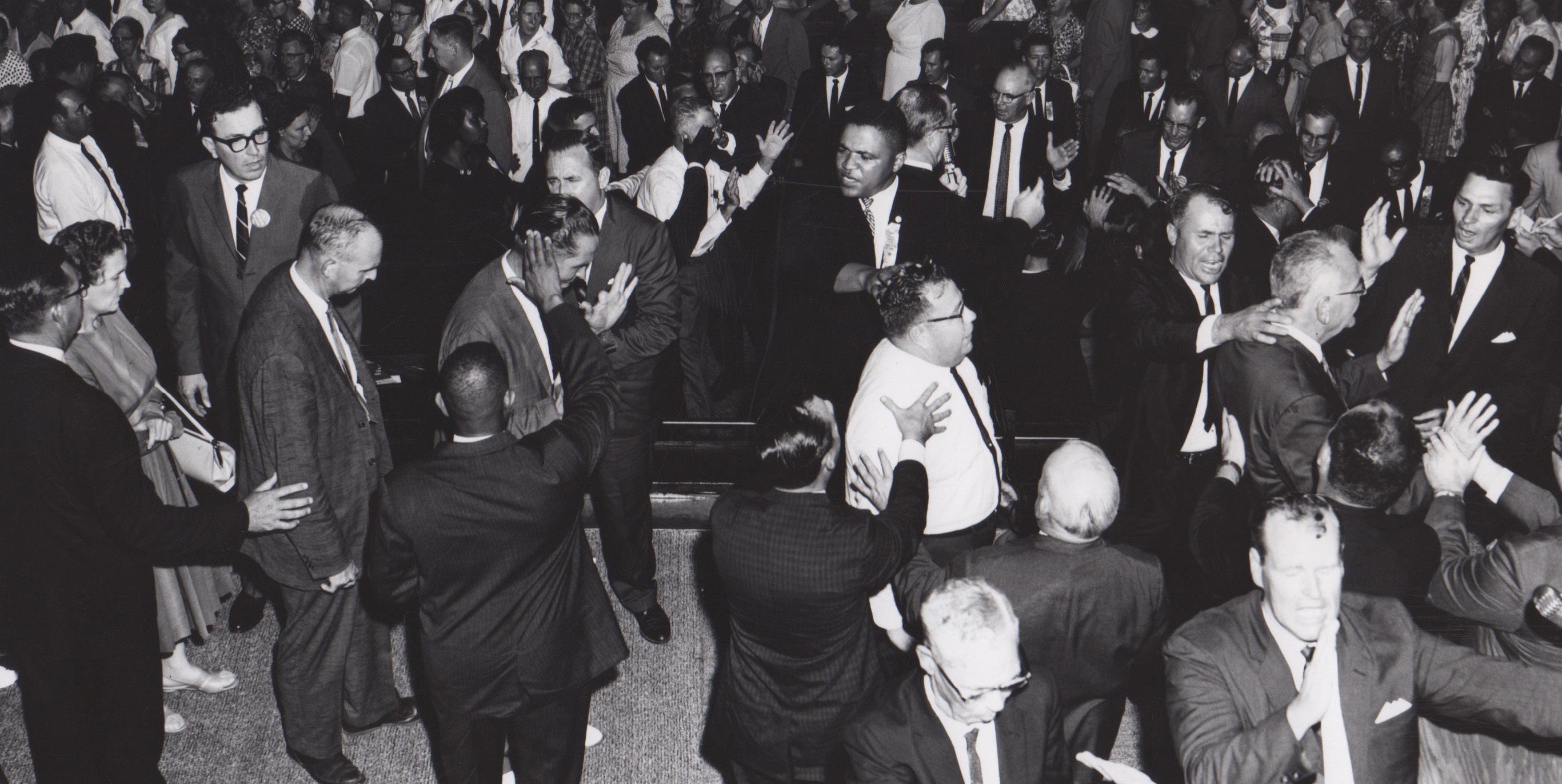
4 minute read
Heritage and Legacy: . . . CONTINUED
Many of us have seen those television episodes that end with a black screen and the white letters running across it that say, “To be continued.” This means that there is another part of the same episode that remains yet to be seen. Usually, we must wait another week before we are afforded the opportunity to hear or see the rest of the story. Our heritage and our legacy are very similar. We are currently the generation that possesses our heritage and legacy, making it a part of who we are. In other words, we, the Church of God of Prophecy, are a “movement” whose continual motion moves towards a destination, goal, or purpose. All those before us worked toward seeing the world come to know Christ. As our first general overseer,
Bishop A. J. Tomlinson, said in our infancy, “We shall girdle the globe with salvation and holiness unto the Lord.” In 1994, the International Assembly adopted the theme “Turning to the Harvest.” Presently, our theme is “On Misson: Reconciling the World to Christ through the Power of the Holy Spirit.” The next generation, if the Lord tarries, will have a theme of their own to push them forward in this same endeavor. The continuation of this theme demonstrates the shared commonality we have with those who came before us. We are part of the same movement, with the same shared destination, with the same goal in mind: to reconcile the world to Jesus Christ through the power of his Spirit!
Dr. James Dobson, quoted at the beginning of this article, makes a distinction between heritage and legacy: “The heritage you pass on is what you give to someone. The legacy is what you do in someone as it has to do with character, values, spiritual understanding, and commitment to Christ.” Our forebearers left us both a heritage and a legacy. They left us our heritage, giving us the foundations and fundamentals of our faith in Christ through their writings on the Word of God. They left us a legacy in demonstrating to us their determination, desire, and commitment to the Lord and his work that we are now partakers in. These that came before us were true heroes of the faith, and their work must carry on because, as we should realize, their work has now become our own. This legacy and heritage we now possess will one day be passed on to another generation.
Our ancient fathers, the apostles of the early church, gave us through their accounts “a declaration of those things which are most surely believed among us, . . . which from the beginning were eyewitnesses, and ministers of the word” (Luke 1:1–2). This Word and this work were meant to be passed on. Luke was writing this to Theophilus, who was the next generation that would carry on the work of reconciling the world to Christ. He wrote to him for the purpose of “having had perfect understanding of all things from the very first, to write unto thee [Theophilus] in order . . . that thou mightest know the certainty of those things, wherein thou hast been instructed” (Luke 1:3–4). Paul instructed many throughout the New Testament, but in his letter to Timothy, he admonished him to observe all the doctrine, teaching, and obligations that had been passed to him from the other apostles; and Paul himself was now passing it on to a young Timothy: “I charge thee . . . , Preach the word; be instant in season, out of season; reprove, rebuke, exhort with all longsuffering and doctrine. . . . But watch thou in all things, endure afflictions, do the work of an evangelist, make full proof of thy ministry” (2 Timothy 4:1–2, 5). Timothy already had a shared heritage and legacy from his mother, Lois, and grandmother Eunice, but the work of his family before him became his own. It was up to him to continue in the faith. The faith of those before us will not save us, but our faith in Christ must become our own.
From our early years of brush arbor revivals to the earliest wooden plank church buildings, from the small brick church buildings to the concrete block church buildings and to the modern conveniences of our churches now, we must remember that our heritage and our legacy continue because we share the work that those before us were once working to accomplish. May we not fail them, but most importantly, may we not fail the Lord of the harvest; our service to him must become paramount. Our heritage, our legacy, and our work to reconcile the world to Christ is . . . to be continued










